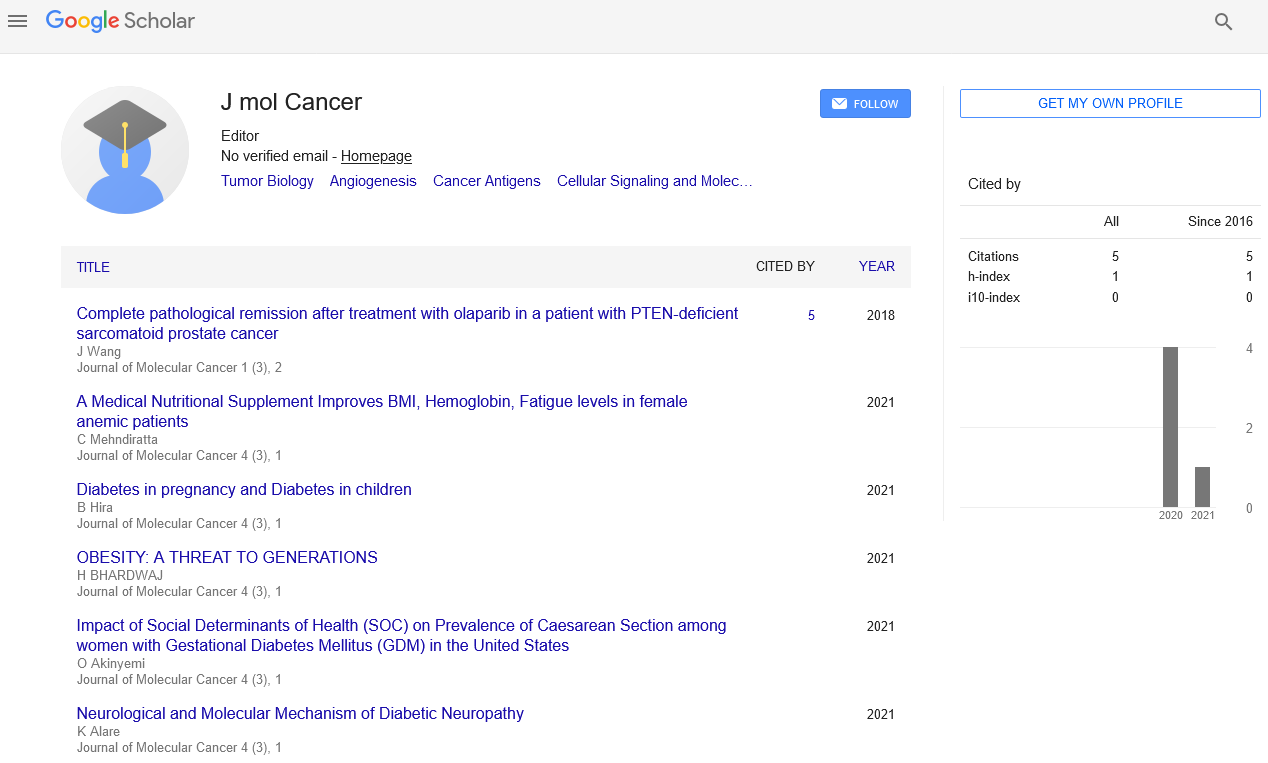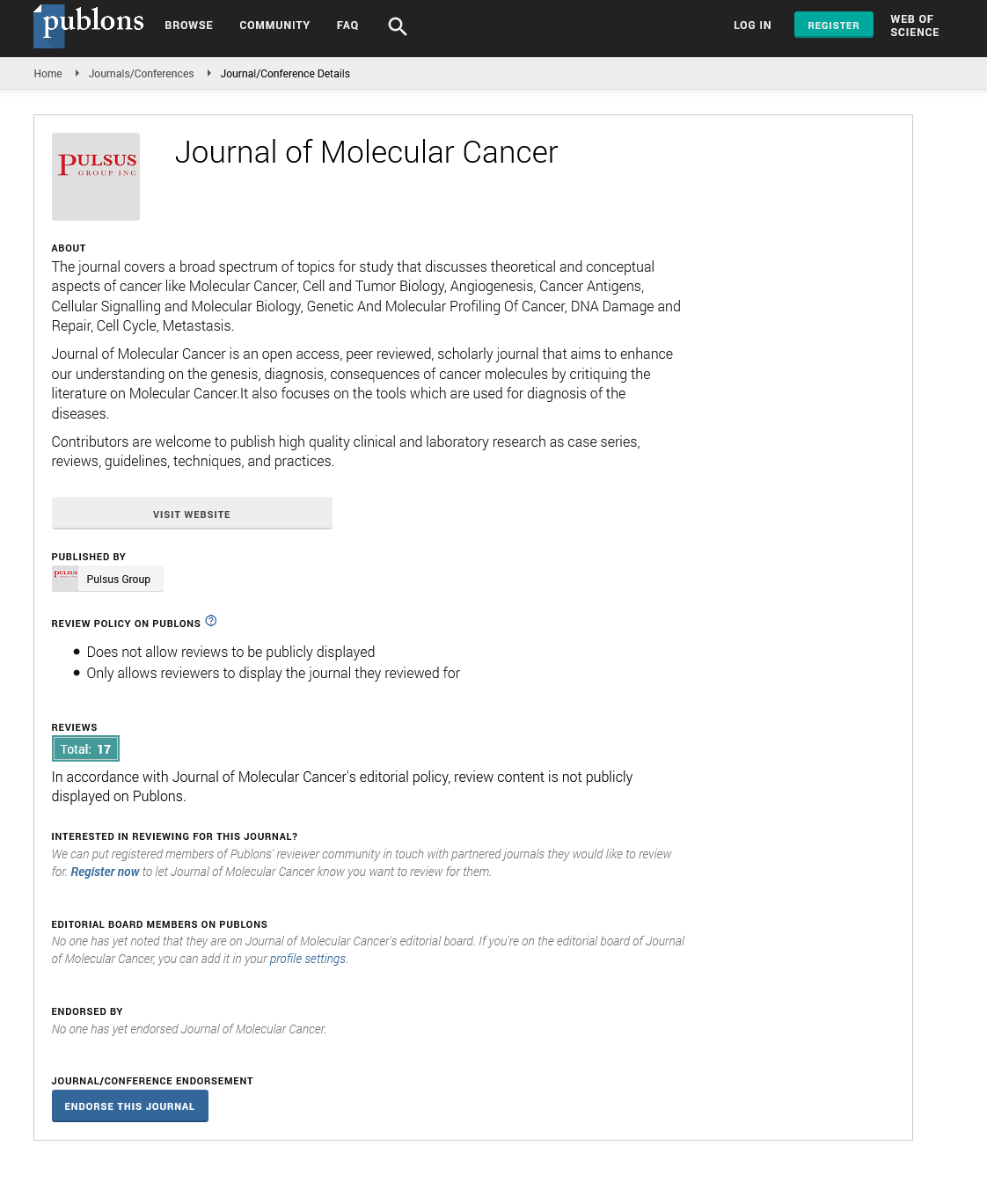
Sign up for email alert when new content gets added: Sign up
Calmodulin antagonists as potential therapeutic agents for cancer treatment “Breast Cancer”
Joint Event on World Congress on Breast Cancer & 5th International Conference on Vascular Biology & Surgeons Meeting
February 25-26, 2019 London, UK
Falah AM Salih
Biotechnology Research Institute, Malaysia
ScientificTracks Abstracts: J Molecular Cancer
Abstract :
Although cancer research undergone a rapid expansion, there is no potential cure and the disease remains one of the leading causes of mortality worldwide. Breast cancer continue as the most female malignancy and a major cause of death in middleaged women. With that, urgent novel potentail theraputic agents are required. Calmodulin regulates many biological processes. Calmodulin antagonists have been reported to induce apoptosis and inhibit tumour cell growth. However, the potential effects of these target agents on various cancer within the molecular levels are poorly understood. In this presentation, we aimed to provide a global view on the latest molecular understanding of cancer development and treatment with special emphasise on breast cancer. In adition, successful preliminary trial was made to find a novel target for breast cancer treatment. Methods: Human breast cancer cell lines; ER-positive; MCF-7, T47D, and ER-negative MDAMB-231 were incubated and grown with calmodulin antagonists; Tamoxifen, W-7, W5, Trifluoperazine and Phenothiazine.The proliferative and cytotoxicity ability was analysed via WST-8 assay on both ER-positive and ER-negative cell lines.The minimum inhibitory concentration was estimated using GraphPad Prism 7. Moreover, Apoptosis was preliminary examine by using DNA fragmentation technique. Gene expression of BRCA1 gene in cell lines were analysed by real-time PCR. Findings: Calmodulin antagonists effectively reduced cell growth of both ER-positive and ER -negative human breast cancer cell lines.The minimum inhibitory concentration, IC50 values of CaM antagonists were between the ranges of 10 to 50μM.There was reduction in calmodulin levels estimated from the samples in comparative to control cells. Rate of gene expressions from target cells were reduced by the addition of the antagonists. DNA fragmentation analysis shows that treatment via CaM antagonists induced apoptosis of programmed cell death in breast cancer cell lines. Conclusion and Significance: The findings suggested that calmodulin strongly involved in tumour cell growth and regulation in breast cancer. It can be useful therapeutic strategy for the treatment of breast cancer. This is preliminary finding, further sequencing for the exons that response strongly to the treatment is going on.
Biography :
Dr Falah achieved his PhD in 1986 from University of Delhi in Medical Biochemistry and Molecular Biology. Since he was involved in teaching in medical schools, same time involved in research mainly on Molecular Bases of Cancer. His main field of experience in molecular Biology. Cureently he is working as Professor of Molecular Biology in the Faculty of Medicine and Health Sciences, University Sabah Malaysia (UMS).
E-mail: muhamad_salih@ums.edu.my





